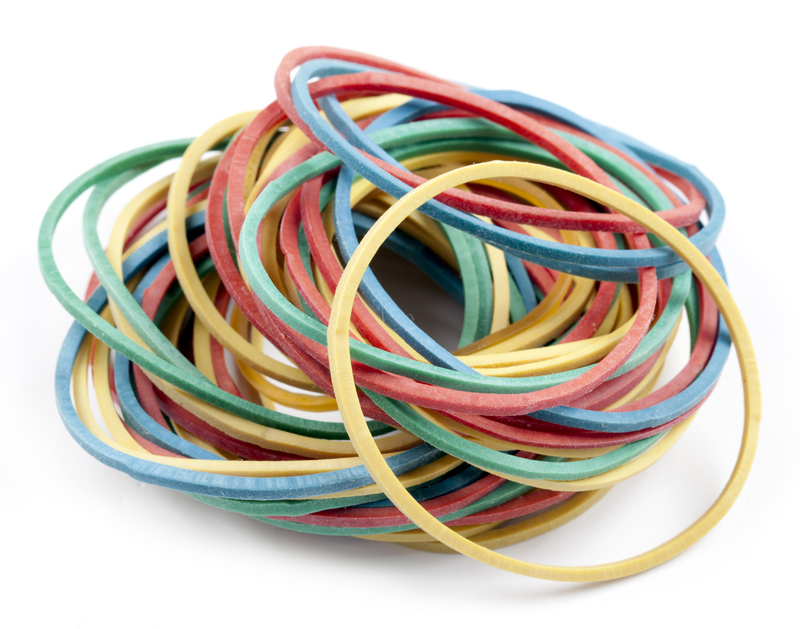
Learn the Best Methods for Recycling Outdated Chargers
Technology moves at a lightning-fast pace, and with each new gadget comes a newer, better charger. The result? Drawers full of outdated or broken chargers that often end up forgotten and eventually thrown in the trash. But did you know that recycling outdated chargers is crucial for the environment? Choosing the best methods for recycling old chargers can make a significant difference in reducing electronic waste.
In this comprehensive article, we'll explore the leading ways to recycle outdated chargers, where to drop off your old cables, safety considerations, practical tips, and the environmental benefits you'll achieve by handling your unwanted electronics responsibly.
- Why Should You Recycle Old Chargers?
- Common Types of Outdated Chargers
- How to Prepare Chargers for Recycling
- Best Methods for Recycling Outdated Chargers
- Safe Disposal Tips for Chargers
- Creative Reuse and Repurposing Ideas
- Environmental Benefits of Charger Recycling
- Frequently Asked Questions
Why Should You Recycle Outdated Chargers?
Old phone and device chargers may seem insignificant, but their improper disposal poses a big environmental threat. Chargers contain valuable materials like copper, gold, and plastic, along with hazardous substances that can leach toxins into soil and water if left in landfills. Electronic waste, also called e-waste, is one of the fastest-growing waste streams globally.
By recycling or properly disposing of your outdated chargers, you
- Reduce landfill waste
- Conserve natural resources by recovering precious metals
- Prevent pollution and toxic leaks
- Support a more sustainable electronics industry
Legal Considerations: Don't Toss Chargers in the Trash!
In many US states and countries worldwide, disposing of electronics, including chargers and cables, with regular household waste is illegal. Fines can apply, and more importantly, tossing them in the trash increases environmental and health risks.
Common Types of Outdated Chargers
Before you recycle, it's important to identify what type of charger you're dealing with. Outdated chargers include:
- USB-A or mini/micro USB chargers - Often used for older smartphones and cameras
- Laptop chargers with proprietary connectors
- Apple 30-pin connectors (pre-Lightning)
- Early model phone chargers (Nokia, Samsung, etc.)
- Old power adapters for gaming devices and small appliances
- Damaged or obsolete USB cables
No matter the style or brand, all types of old device chargers are eligible for recycling if handled correctly.
How to Prepare Chargers for Recycling
Proper preparation ensures your charger can be safely and efficiently recycled. Follow these steps:
- Gather and sort all unused and outdated chargers, adapters, and cables.
- Remove any personal data from attached devices (e.g., a charger with a built-in USB drive).
- Test whether chargers are working; separate functional units which might be suitable for reuse or donation.
- Tangle and bundle cords neatly using twist ties or reusable cable organizers.
- Label any proprietary or rare chargers that might be valued by schools or charities.
Good preparation helps recycling centers process your chargers more efficiently and increases the chances that components will be reclaimed.
Best Methods for Recycling Outdated Chargers
There are several effective ways to ensure your outdated chargers are recycled responsibly. Let's examine the best methods:
1. Utilize Electronics Retailer Take-Back Programs
- Major electronics retailers like Best Buy, Staples, and Office Depot offer recycling bins for small electronics, including chargers and cables.
- Simply bring your cords and adapters in a bag and look for the clearly marked e-waste drop-off stations.
- These programs are free and convenient and guarantee responsible processing.
2. Recycle at Dedicated E-Waste Collection Events
- Most communities organize periodic e-waste collection events where you can drop off chargers, old phones, cords, and other electronics for safe handling.
- Check city or county government websites or local news listings for upcoming collection dates.
- These events are reliable, ensuring outdated chargers avoid the landfill.
3. Visit Your Local Recycling Center
- Many municipal recycling centers accept small electronics, including chargers, as part of their regular operations.
- Consult your local waste management or recycling authority website for their e-waste guidelines.
- Drop off your chargers, and ask staff for direction if unsure about specific materials.
4. Mail-In Recycling Services
- Several companies and environmental organizations offer mail-in e-waste recycling solutions.
- After registering online, you'll receive a prepaid shipping label or container to send your outdated chargers.
- Reputable mail-back options include TERRACycle, GreenCitizen, and Call2Recycle.
5. Manufacturer Take-Back Initiatives
- Some manufacturers, such as Apple and Dell, provide specific take-back or trade-in programs for their accessories.
- Contact the brand's customer support or visit their website to learn about current programs for recycling adapters and cables.
Safe Disposal Tips for Chargers
Not all chargers should be treated the same. Here are some extra safety tips for disposing of chargers properly:
- Never burn or incinerate cables or adapters; toxic chemicals are released when components are burned.
- If a charger is bulging, melted, or produces an odor, use gloves and place it in a sealed bag before dropping it off.
- Remove batteries or power packs from any chargers before recycling, as they often require special handling.
- Follow local rules and written instructions at recycling centers.
- For chargers with integrated batteries or smart features, seek specialized e-waste handling.
Creative Ways to Repurpose Old Chargers
While recycling is great, sometimes reusing outdated chargers is even better for sustainability. If the cords or adapters still work, consider these creative ideas:
- Cable organizers: Repurpose old cords by turning them into cable ties or organizers for other electronics.
- Lending or donating: Schools, libraries, and community centers might need spare chargers for communal devices.
- Craft projects: Use colorful cables in artwork, jewelry, or decorations.
- DIY charging stations: Build a charging hub for family devices using a collection of old adapters and power strips.
Always inspect for damage or fraying before reusing an outdated charger.
Environmental Benefits of Charger Recycling
By choosing the best methods for recycling outdated chargers, you:
- Conserve non-renewable resources such as copper, aluminum, and rare earth metals
- Lower greenhouse gas emissions by reducing the need for new manufacturing
- Protect the environment from toxic chemicals leaching from landfills
- Support the circular economy and reduce your ecological footprint
Each charger recycled is one less item polluting the planet!
Frequently Asked Questions About Recycling Old Chargers
Can all old chargers be recycled?
Most chargers and cables can be recycled, but best practices differ depending on materials and your local facility. Check for any recycling restrictions on proprietary or specialty chargers.
What happens to chargers after recycling?
Chargers are typically broken down; metals are extracted and plastics are cleaned for reuse. Any hazardous elements are safely disposed of according to regulations.
Is charger recycling free?
Many retailer programs and local recycling centers offer free recycling. Some mail-in services may charge a small fee, especially for bulk or business-level recycling.
Can I sell old but working chargers?
Yes! If your charger is still functioning, consider selling or gifting it online through platforms like eBay, Craigslist, or Freecycle.
What if I'm not sure where to take my outdated chargers?
Use resources like Earth911's recycling locator or call your waste management provider for the best local recycling options.

Conclusion: Do Your Part by Recycling Outdated Chargers Responsibly
Recycling old chargers is a simple yet effective way to contribute to a healthier planet. With multiple options--from retailer drop-off to mail-in programs and community e-waste events--the process is easier than ever.
By choosing eco-friendly and responsible disposal methods, you'll help reduce harmful e-waste, recuperate valuable resources, and set a positive example for others.
Don't let your outdated chargers sit in a drawer--opt for green solutions and make a real difference today!